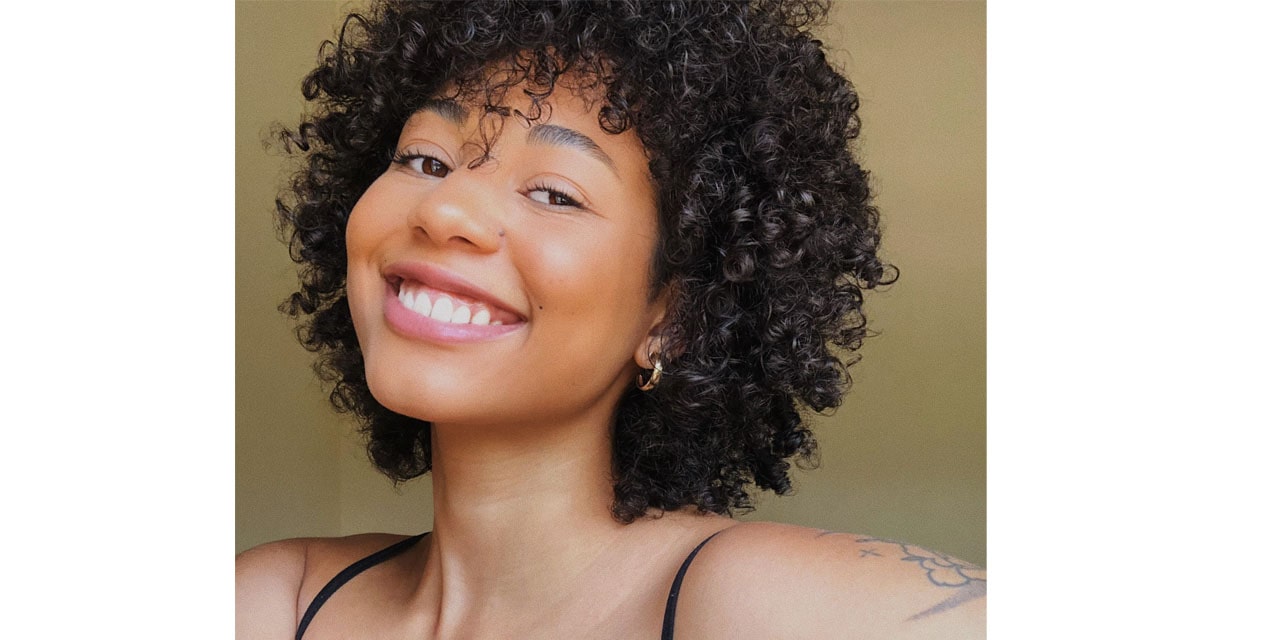Nameya Jacobs
Disclaimer: I am light-skinned, mixed-race, and petite with 3B/3C hair. This means I am sitting on a mountain of privilege which has to be remembered throughout this article. Dark-skinned Black women who are either tall, fat, masc-presenting, disabled, or anything that doesn’t fit into the eurocentric standards of beauty have it much worse. Colourism is prevalent both in and out of the Black community and it is my duty, and the duties of the women who look like me, to speak up against it.
From the age of three, I knew that stood next to a white girl, I’d be seen as second best. It’s something every Black girl I’ve spoken to learned at a young age, and something that even after years of learning and unlearning, I still struggle with. Whiteness is so ingrained in our society that even the youngest in it know what to aspire to. What they don’t know is that if they’re Black, their aspirations will amount to nothing more than a fantasy, because what Black girls are taught is that they’re worthy of fetishisation at best and demonisation at worst.
For a long time I tried to assimilate. I’d straighten my hair, keep up with Western culture and media, and rejected anything associated with my Black, Namibian side.
Initially, this article was going to be a little more academic. I was going to cite my sources* and lay out statistical reasons why I had the right to feel the way I do, but my lived experience does not need to be backed by data. Read that again, my lived experience does not need to be backed by data. So instead I’m going to tell you why calling me “the angry Black girl” isn’t the insult you think it is.
Something a lot of people don’t seem to understand is that my issue is not with white people as individuals**, but rather, whiteness as a system of oppression. Don’t know the difference? Google is free.
To quote Reni Eddo-Lodge on the topic of white privilege from her book “Why I’m No Longer Talking To White People About Race”,
“White privilege is a manipulative, suffocating blanket of power that envelops everything we know, like a snowy day. It’s brutal and oppressive, bullying you into not speaking up for fear of losing your loved ones, or job, or flat. It scares you into silencing yourself: you don’t get the privilege of speaking honestly about your feelings without extensively assessing the consequences.”
“Manipulative” and “suffocating” are the perfect words to describe what it’s like being a Black woman in a white world. My passion is routinely perceived as anger, and my anger is routinely perceived as violence, and more often than not, white women are the people upholding the need to fear me.
Ask a liberal white woman if she thinks she plays into the idea of white femininity and you’ll probably get a disgusted “no”. The idea that she, a descendant of the women who fought for white feminism, (emphasis on white), would ever conform to or uphold the values set by her white brothers is ludicrous, BUT PUT SIS IN A ROOM FULL OF MEN AND A BLACK WOMAN AND WATCH HER BECOME “SWEET” AND “INNOCENT”.
When white women are threatened by Black women, whether that be economically, socially, or politically, they resort to the tactic they know best: submission. Because so much of what we are taught as girls is centred around men and their pleasure, appealing to them and their expectations of femininity is the only way white women can garner sympathy.
Now before I continue, I can already hear a brigade of angry white women, (yes, white women can be angry too, shocking), with questions like, “how does this help us liberate all women?” and comments like “all this does is divide us”. I want you to know, from the bottom of my heart, that my goal is not to unite anyone, because until Black women are respected, appreciated, and given some much needed recognition, unity is unattainable.
It’s hard for me to take “angry” as an insult, especially when my father exposed me to activists like Malcolm X and James Baldwin the minute I learned to talk. Anger, to me, inspired change, and being hated by the demographic of people I was fighting against meant what I was saying resonated. It was after reading books by Angela Davis and bell hooks that I realised, well behaved women did not make history.
I have no desire to “calm down” or “pick a more appropriate time” when it comes to speaking up against white feminism, white fragility and the violence whiteness perpetrates in general. I will always be angry and I will always be Black. It will never be in my best interest, or the people I care about the most, for me to be quiet, to be palatable, to be seen and not heard. My anger is what keeps the conversation going in my household, my friendships, my relationships, and the boardrooms I’m invited to sit in. If my experience as a Black woman and the pain that I’ve inherited because of it comes across as anger, ask yourself why your immediate reaction is to silence and not to understand. Why does change seem like a threat?
And as for the people who think I need to mend my relationship with white women, I’ll leave you with this:
“We ain’t making up, I don’t need a mediator.” — Nicki Minaj, Did It On’em
*I ended up citing my sources anyway. That’s what going to university for four years will do to you.
**I still have an issue with some of y’all personally but being white doesn’t graze the top five.




